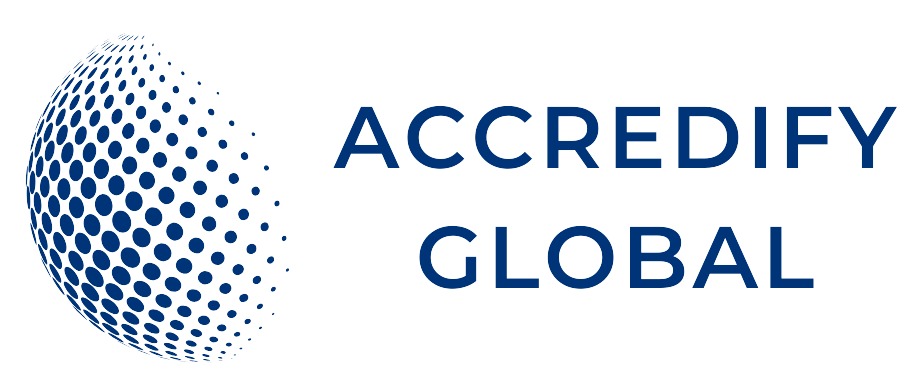ISO 26000:2010 Certification – Social Responsibility Standard | Accredify Global

Social responsibility has become one of the most important factors to measure your organization performance and this is true of all sectors of society. Social responsibility is an organization’s responsibility in terms of legal and voluntary duty to consider its social and environmental impact of its decisions and activities. A corporate responsibility strategy outlines the ways that an organization responsibility contributes to sustainable development, engages with its stakeholders, and behaves ethically.
ISO 26000 Cerification is intended to assist organizations in contributing to sustainable development. It is intended to encourage them to go beyond legal compliance, recognizing that compliance with law is a fundamental duty of any organization and an essential part of their social responsibility. It is intended to promote common understanding in the field of social responsibility, and to complement other instruments and initiatives for social responsibility, not to replace them.
An enhancer of social responsibility, ISO 26000 corporate social responsibility can help you address everything from working practices to environmental policies, sustainable development, and the communities that you impact.
Evolution of ISO 26000:2010 Certification
ISO 26000 was introduced in 2010 as a global guidance standard for corporate social responsibility (CSR). Unlike other ISO standards, ISO 26000 is not a certification standard but provides organizations with a framework to implement ethical, transparent, and socially responsible business practices.
With more than 90% of consumers preferring ethical brands, ISO 26000 helps businesses enhance their social impact, stakeholder trust, and sustainability efforts.
What is ISO 26000 - Social Responsibility Standard?
ISO 26000 is an international standard for corporate social responsibility (CSR), guiding businesses on:
- Ethical governance & fair labor practices.
- Environmental sustainability & resource efficiency.
- Community engagement & human rights compliance.
- Transparent supply chain & anti-corruption policies.
Who Needs ISO 26000 Certification?
ISO 26000 is beneficial for organizations committed to social responsibility, including:
- Multinational corporations & SMEs.
- Government agencies & public sector institutions.
- NGOs & non-profits.
- Educational institutions & universities.
- Manufacturing & supply chain companies.
- Financial institutions & investment firms.
Importance of ISO 26000 Certification
With ethical businesses growing 35% faster than competitors, ISO 26000 helps organizations:
- Improve brand reputation & stakeholder trust.
- Reduce environmental impact by up to 40%.
- Enhance employee satisfaction & retention by 30%.
- Increase investor confidence in ESG (Environmental, Social, and Governance) compliance.
ISO 26000 and Its Major Aspects in Business
ISO 26000 provides a holistic CSR framework, covering:
- Human rights & fair labor standards
- Environmental impact & sustainability
- Fair trade & anti-corruption policies.
- Consumer rights & ethical marketing.
- Community engagement & social impact.
The Principles of ISO 26000 Certification
The principles of ISO 26000 include:
- Accountability – Businesses must take responsibility for their social & environmental impact.
- Transparency – Open communication on policies, decisions & sustainability practices.
- Ethical Behavior – Promoting honesty, fairness & integrity in business operations.
- Respect for Stakeholders – Engaging employees, customers & communities fairly.
- Compliance with the Law – Adhering to national & international regulations.
- Respect for Human Rights – Ensuring fair labor practices & human dignity.
- Sustainability – Reducing environmental footprint & promoting responsible resource use.
Checklist for ISO 26000 Certification
- Conduct a CSR & sustainability impact assessment
- Develop an ethical governance & compliance framework
- Implement sustainable supply chain & fair trade policies
- Engage in community outreach & stakeholder dialogue
- Establish an environmental sustainability program
- Implement emergency response plans
- Maintain records and documentation
Is ISO 26000 Certification mandatory or a legal requirement?
ISO 26000 is not a certification standard, but many organizations adopt it to:
- Meet regulatory & sustainability requirements
- Enhance corporate social responsibility initiatives
- Attract ethical investors & customers
Services
Benefits of ISO 26000 Certification
35% increased customer trust & brand loyalty
40% reduction in environmental impact.
Improved compliance with global CSR regulations.
Enhanced employee engagement & productivity.
Higher ESG investment opportunities & financial stability.
Requirements of ISO 26000 Certification
Align CSR policies with the seven core principles.
Integrate social & environmental responsibility into business operations.
Engage stakeholders in ethical decision-making.
Monitor sustainability goals & social impact initiatives.
Continual improvement.
Cost of ISO 26000 Certification
The cost of ISO 26000 certification varies depending on the size and complexity of the organization. However, the investment can lead to significant energy cost savings and improved energy efficiency.
On average, ISO 26000 certification costs range from $5,000 to $25,000, including auditing and consultation fees.
PDCA Cycle | Accredify Global
- Plan – to think that what do we need to achieve in our organization
- Do – to execute a planned action which will help us achieve the required objective
- Check – monitor against the standards) (policies, objectives, requirements)
- Action – finally implementing what has been rechecked.
ISO CERTIFICATION. 3 STEPS. 30 DAYS. DONE !! | ACCREDIFY GLOBAL
Accredify Global, we follow a structured and transparent ISO certification process to help businesses achieve international compliance efficiently. Our streamlined approach ensures a hassle-free experience from initial consultation to final certification..
3. Audit Review & Certification
- Objective: Validate your management system through an external audit and achieve certification.
- Actions:
- Conduct an internal audit to ensure readiness for the certification audit, utilizing Accredify Global's auditing tools and resources.
- Schedule and undergo an external audit with Accredify Global's accredited certification body.
- Address any non-conformities identified during the audit with support from Accredify Global's consultants.
- Outcome: Successful certification and ongoing compliance with the ISO standard, with continuous support and guidance from Accredify Global.
